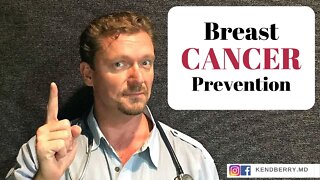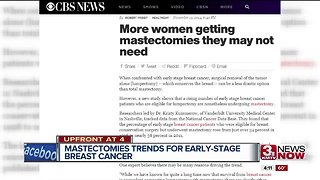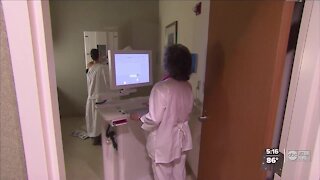Breast Cancer and Mastectomy | What YOU SHOULD KNOW| Exams YOU CAN DO | Prevent it and fight it
Work with a health coach on a monthly basis, and start improving your health from tomorrow. info@superlongevity.net Write us (info@superlongevity.net) to know how to purchase one or more of the new protocols offered by our professionals:
1) the super longevity protocol;
2) the super immunity protocol;
3) the super energy and mitochondria protocol;
4) the hair loss protocol:
5) rejuvenation T protocol (telomeres age);
6) rejuvenation M protocol (DNA methylation age);
7) sport performance, stamina and endurance protocol;
8) sport performance, testosterone, muscles and strength protocol.
For any other queries, feel free to write to info@superlongevity.net and we'll put you in touch with professionals who work with our network.
***
Breast Cancer and Mastectomy
***
Tell us about your personal experience in the comment section.
We are always thrilled to hear your feedback and experience.
***
If you want us to give you the contact information of professionals who work with our network, feel free to write to info@superlongevity.net and we'll put you in touch with the right professional for your needs.
In order to better find the right professionals for you, please indicate in your email if your queries regarding: 1) overall health; 2) food and supplement; 3) longevity. 4) others (in this case a brief description of your needs is recommended). We will get back to you as soon as possible with the contact information of a specific provider.
***
Cancer grows in the breast tissues when individual cells face mutation at the molecular level. Breast cancer is uncontrolled growth and division of lobules and the ducts in breast tissues. Lobules are glands that produce milk, and ducts which drain the milk from glands to nipples. Cancer can also occur in fatty tissue or fibrous connective tissue within the breast. The uncontrolled cancer cells often travel to lymph nodes under the arms. Through lymph nodes, breast cancer can spread to other sites of the body (metastasis).
Breast cancer is the most common cancer in women worldwide. Approximately 50800 women died across the globe due to breast cancer in the year 2011.
Breast cancer is most common in the women population of developed countries. Breast cancer is a preventable and treatable disease if diagnosed early. It can be benign or malignant depending on the type of disease pattern. Physical examination is the first and foremost important step in early detection. Initial presentation can be a lump, pain, swelling, or discharge. The key point in the self-breast examination is to note any unusual change in breast shape, skin texture, like puckering or dimpling, or skin that looks like orange peel. If a woman is experiencing any of such changes then the next step is mammography. Mammography uses a low dose x-ray to see inside the breast. A mammography exam, called a mammogram, helps in the diagnosis of breast disease. Mastectomy is the surgical removal of the cancerous part of the breast in case of advanced-stage cancer. Mastectomy involves either the resection of a lobule or gland in a breast or a breast tissue. When breast cancer is diagnosed initially, your oncologist will give you many options regarding mastectomy, you will need to answer his few queries about lifestyle and mental health post-surgery. So it will be you who will decide either to go for extensive mammalian surgery or removal of a few parts and live under constant fear of recurrence. Radiation with surgery can also be a viable option. Post-mastectomy, breast augmentation plastic, and reconstruction surgery may help in dealing with the psychological effects of mastectomy. Breast cancer treatment strategies involve surgical resection of breast tissues, in some cases, it can be bilateral removal of breasts. Unlike most other surgeries, this is particularly linked to the deteriorating state of mental health. Women feel that their body has been mutilated because of breast cancer and its treatment with options like a mastectomy. Loss of glamor and feelings of depreciation could be present. Post-mastectomy, patients suffers from mood disorders such as hopelessness, anger, constant sad mood, anxiety, low self-esteem. Depression is also commonly found in such patients. Sufferers also fear relapses. There are several ways to improve mental health and psychological recovery if patients underwent treatment options such as mastectomy. Depression and mood-related disorders are leading symptoms that can easily be treated with antidepressants and mood-stabilizing drugs. The American Society of Breast Cancer has launched a program for awareness. One can reach them out.
Some patients find peace in spiritual healing. Losing breasts can lead to a decrease in libido. This reduces the desire for sex as well. Talk to your partner for sexual concerns. Breast cancer awareness month is marked worldwide in October every year. The pink ribbon brand is about this awareness campaign.
***
Contact: info@superlongevity.net
-
 15:15
15:15
Dr Berry's Proper Human Diet
4 years ago $0.02 earnedBreast Cancer Prevention: 10 Things You Didn't Know?
154 -
 8:34
8:34
Dr Berry's Proper Human Diet
6 years ago $0.02 earned7 Ways to Prevent Breast Cancer (Reduce Breast Cancer Risk) 2021
88 -
 42:17
42:17
NavigatingBreastCancer
7 months agoMy Breast Cancer Journey | Part 1 | Diagnosis
1441 -
 3:13
3:13
Dr. Eric Berg
8 months agoBreast Cancer in Men
6.65K2 -
 1:33
1:33
WPTV
5 years agoBreast cancer survivor credits early detection, annual exams saving her life
10 -
 1:53
1:53
KMTV
5 years agoMastectomy rises for early-stage breast cancer
-
 11:07
11:07
TheRealTruthAboutHealth
10 months agoAre Cell Phones Having An Impact On Breast Cancer?
170 -
 2:20
2:20
WFTS
2 years agoBreast cancer screenings still important
3 -
 19:56
19:56
TheRealTruthAboutHealth
1 year agoThe Cancer Imaging Exams Without Radiation
145 -
 12:00
12:00
TheRealTruthAboutHealth
1 year agoDebunking Breast Cancer Myths
123